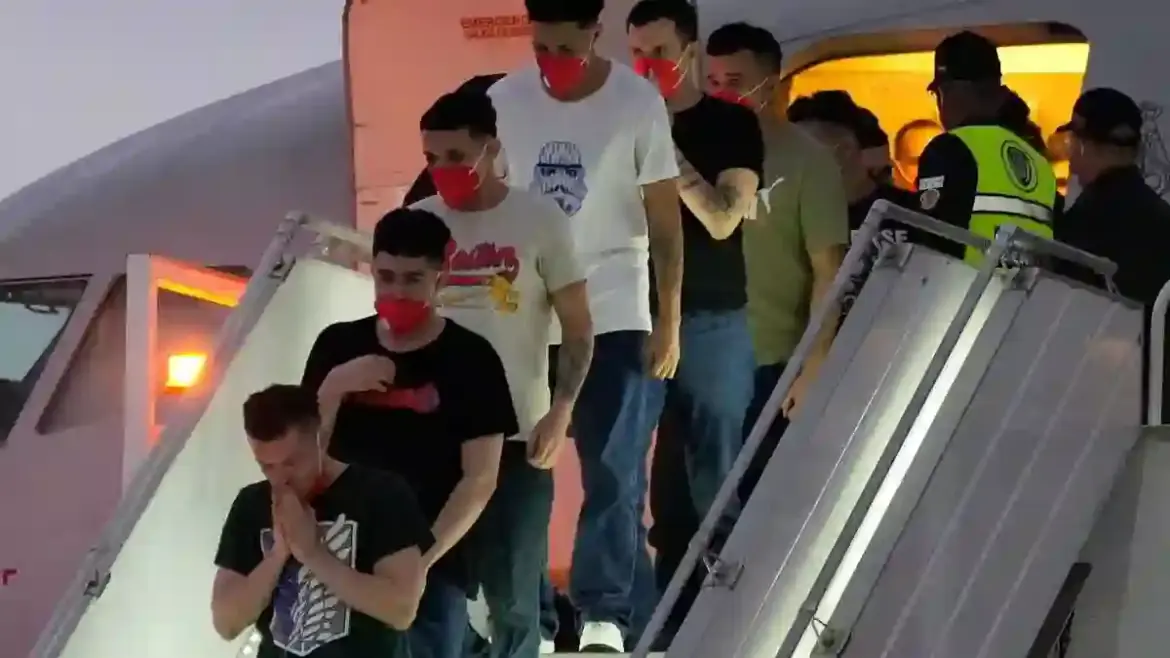For more than four years, hundreds of thousands of Venezuelans have been living in the United States under Temporary Protected Status (TPS), allowing them to work legally and avoid deportation. But that is about to change.
The Trump administration has announced it will end the designation, affecting over 256,000 people and forcing them to make quick decisions about their future.
From Biden’s Protections to Trump’s Reversal
Back in 2021 and again in 2023, former president Joe Biden approved TPS for Venezuelans, citing the turmoil in their home country.
The program gave eligible migrants the right to work and stay temporarily, shielding them from being sent back to crisis-hit Venezuela.
Now, President Trump’s administration says Venezuela no longer meets the criteria—criteria that typically cover nations dealing with war, natural disasters, or extraordinary upheaval.
The Administration’s Reasoning
A spokesperson from the Department of Homeland Security (DHS) explained the decision bluntly: keeping Venezuelans under TPS is “not in America’s best interest.”
Officials pointed to national security, economic pressures, and what they described as the “magnet effect,” claiming that TPS encourages more irregular migration.
The existing designation officially ends on September 10.
While migrants are being told to start planning their departures, DHS clarified that the termination becomes effective 60 days after the notice is published in the Federal Register.
Who Will Be Affected
This isn’t just about the 256,000 people already covered.
More than 3,700 pending applications for TPS will now be scrapped, along with over 100,000 renewal requests.
Altogether, this means hundreds of thousands of Venezuelan nationals are about to lose their legal protections in the U.S.
Legal Battles and Setbacks
Trump first tried to roll back TPS for Venezuelans in February, just weeks after returning to office.
Homeland Security Secretary Kristi Noem argued that allowing them to stay was “contrary to the national interest.”
A California judge temporarily blocked that move, calling it unconstitutional, but the U.S. Supreme Court later sided with the government, opening the door for deportations to go ahead.
In April, Trump also ended the second Biden-era TPS order, stripping protections from an estimated 348,000 Venezuelans.
Incentives for Voluntary Departure
For those who agree to leave voluntarily, DHS is offering a package.
Venezuelans who register their exit through the CBP Home app can receive a free plane ticket, a $1,000 cash bonus, and the possibility of future legal immigration opportunities.
A Parallel Show of Force
This announcement comes just a day after Trump revealed a U.S. military strike on a Venezuelan drug-running vessel.
According to the president, the attack killed 11 members of the Tren de Aragua criminal group and stopped a large shipment of drugs from reaching American shores.
“We just shot out a drug-carrying boat,” Trump told reporters. “It had a lot of drugs in it, coming from Venezuela.
We took it out.” He later repeated the warning on Truth Social, making it clear that traffickers should “beware.”
Venezuela’s Furious Response
Unsurprisingly, Nicolás Maduro was quick to respond.
Still considered illegitimate by Washington after last year’s disputed election, the Venezuelan leader accused the U.S. of criminal aggression.
He threatened to “declare a republic in arms” if American forces attacked and said the country was on maximum alert.
The Pentagon, meanwhile, has already deployed seven warships to the southern Caribbean, raising tensions further.
Maduro denounced the move as “immoral, criminal and bloody.”
What Comes Next
With TPS ending and military pressure rising, the relationship between Washington and Caracas looks set to get even more hostile.
For the Venezuelans living in the U.S., though, the immediate concern isn’t geopolitics—it’s where to go, how to leave, and what their futures will look like once their protections are gone.
